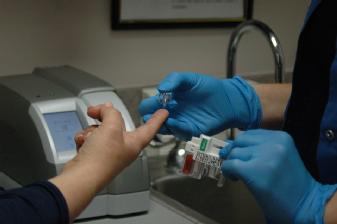IER News & blogs
Job growth and job quality: Harnessing the potential of the Social Economy in the post-Covid recovery - Blog by Peter Dickinson
The impact of the 2008 Financial Crisis
The 2008 Financial Crisis created the deepest UK recession since World War II, and the longest for more than a century according to the Office for National Statistics. UK Gross Domestic Product (GDP) did not reach pre-recession levels until 2013. Employment only recovered in 2014.
There were similar impacts across Europe with the severity and length of impact varying between countries. Southern European countries (such as Spain and Italy) fared worse whilst Northern and Eastern European countries (for example, Sweden and Poland) improved more quickly.
Compared to 2007/08, Sweden’s GDP had recovered by 2010, Poland’s by 2011, the UK’s by 2013, Italy’s by 2016, and Spain’s by 2017. Employment levels took longer to resurface: the UK and Poland reached pre-recession rates by 2014, Sweden by 2015, Italy by 2018, and Spain’s has yet to fully recover according to data from Eurostat.
Whilst the UK’s jobs rebound was relatively swift it was also problematic. As the UK’s 2017 Taylor Review of Modern Working Practices reported, the jobs recovery from the Financial Crisis led to more atypical and precarious employment, especially amongst disadvantaged groups of people, and was also characterised by slow wage growth.
 The full extent of the Covid-19 induced recession is yet to materialise and so the impact on economic growth and jobs is harder to calculate. Most analysts expect a much sharper recession but a swifter recovery compared with 2008. The latest analysis by HM Treasury suggests a 25% reduction in GDP to midyear, then positive GDP growth from the autumn onwards. The jobs trend is more difficult to predict. In the countries cited above, the jobs lag compared to GDP (in terms of regaining pre-recession levels) varied from one year in the case of the UK to five years in Sweden.
The full extent of the Covid-19 induced recession is yet to materialise and so the impact on economic growth and jobs is harder to calculate. Most analysts expect a much sharper recession but a swifter recovery compared with 2008. The latest analysis by HM Treasury suggests a 25% reduction in GDP to midyear, then positive GDP growth from the autumn onwards. The jobs trend is more difficult to predict. In the countries cited above, the jobs lag compared to GDP (in terms of regaining pre-recession levels) varied from one year in the case of the UK to five years in Sweden.
What is more certain is that the impact of the pandemic will not be equal across the working population. The Institute for Fiscal Studies predicts the greatest impact to fall on the most disadvantaged groups in the economy: those on low incomes; young people; Black and Minority Ethnic workers; and women.
SEEs and recovery in selected countries
The response of the SEE sector to the 2008 Financial crisis provides evidence that jobs growth and job quality can both be achieved. Employment growth can be gained alongside inclusive growth and quality jobs benefitting employers, workers, disadvantaged people, their communities and the national economy.
 The size and structure of the SEE varies across the five countries in the study. SEE employment accounts for around 17% of jobs in Italy, 12% in Sweden, 9% in Spain, 7% in the UK and 6% in Poland. The sectoral distribution also varies. In Poland, Spain and Sweden, most co-operative jobs are in agriculture but in Italy they are in health and social work, and in the UK it is banking (thanks to building societies).
The size and structure of the SEE varies across the five countries in the study. SEE employment accounts for around 17% of jobs in Italy, 12% in Sweden, 9% in Spain, 7% in the UK and 6% in Poland. The sectoral distribution also varies. In Poland, Spain and Sweden, most co-operative jobs are in agriculture but in Italy they are in health and social work, and in the UK it is banking (thanks to building societies).
Whilst the SEE sector varies there has been a consistent pattern across the countries in terms of jobs growth and business performance. SEEs recovered from the 2008 Financial crisis better than mainstream businesses and demonstrated higher growth rates. In Italy, SEEs recorded jobs growth between 2007-11 whilst employment levels elsewhere declined. In the UK, the number of SEEs increased whereas the number of mainstream enterprises fell. In Spain, SEE employment levels reached pre-recession levels by 2016 whereas they have yet to recover in the economy overall. The survival rate of Spanish SEEs was also higher compared to mainstream businesses.
The enhanced business and employment performance of SEEs has been achieved along with providing good quality jobs. Job quality tends to be higher in SEEs, for example, they employ higher proportions of permanent and full-time workers. SEEs are also more likely to be run by and employ women, as well as employing more disadvantaged groups such as disabled people and migrants.
The relative expansion of SEEs, we found in the study, was due to their business performance. Put simply they were better run businesses. They were more innovative, more effective at meeting market and customer needs, and were better managed.
 Key practices, inherent to SEEs, contributed to their better management and business performance: governance and internal decision-making structures and processes; reinvesting (rather than extracting) surplus value; prioritising jobs over wages and profit; sharing risks and rewards; and a long-term focus and shared values among members and workers.
Key practices, inherent to SEEs, contributed to their better management and business performance: governance and internal decision-making structures and processes; reinvesting (rather than extracting) surplus value; prioritising jobs over wages and profit; sharing risks and rewards; and a long-term focus and shared values among members and workers.
SEEs demonstrate human resource practices more widely viewed as underpinning high performance businesses more generally, such as: effective communication structures; generating employee engagement; better skills utilisation; greater worker task discretion; employee involvement in task-related decision-making; and investing in workforce skills. These practices appear to create a ‘virtuous circle’ by which internal practice generates positive organisational performance that, in turn, provides positive employment outcomes, thus reinforcing the practice.
Supporting SEEs to deliver job growth
There is every reason to believe that SEEs can be an important component of the Covid-19 recovery. This possibility is recognised by the OECD and European Commission. The UK Government should therefore be encouraging SEEs as a route to rebuilding the economy and good jobs. In our study, we identified policy pointers to support SEEs, many of which are relevant to the current situation:
- Provide general policy support from Government, LEPs and Combined Authorities, as well as targeted specific support, such as, start-up and business support relevant to SEEs;
- Raise the profile of SEEs amongst business support organisations, and encourage SEE to take-up business support (e.g. via Growth Hubs);
- Promote social value clauses in public tendering so that cost is not the only factor when awarding contracts;
- Mainstream SEEs in enterprise and business education so that budding entrepreneurs are aware of these business models;
- Further support the development of management skills across the sector.
Through supporting and promoting SEEs, local and regional agencies can maximise the benefits of more and better quality jobs, and inclusive economic development. They can help the UK economy be built back quicker and better.
